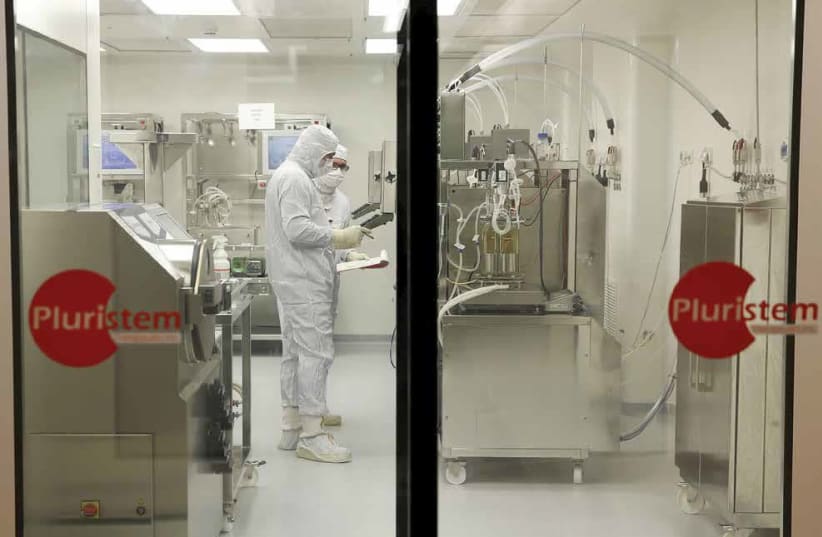“We will first approach COVID-19 patients through compassionate use so we can treat them immediately,” explained Yaky Yanay, president and CEO of the company that produces the cell therapy. “We will be able to support the healthcare system and be able to help maintain and contain this disease.”
Pluristem is moving forward with these efforts through a collaborative agreement with the BIH Center for Regenerative Therapy (BCRT) and the Berlin Center for Advanced Therapies (BeCAT) at Charité University of Medicine Berlin. Together, they are conducting a joint project evaluating the therapeutic effects of Pluristem’s patented PLX cell product on patients who are developing severe respiratory disorders, a symptom of the novel coronavirus and the cause of death for most critical patients thus far.
BCRT is a cooperative translational research institution of the Charité University Hospital in Berlin and the Berlin Institute of Health (BIH).
Target patients, Yanay said, would be the aging population and those with pre-existing respiratory disorders.
In a release, Pluristem explained that its PLX cells are “allogeneic mesenchymal-like cells that have immunomodulatory properties,” meaning that they induce the immune system’s natural regulatory T cells and M2 macrophages. The result could be the reversal of dangerous overactivation of the immune system. This would likely reduce the fatal symptoms of pneumonia and pneumonitis (general inflammation of lung tissue).
Previous pre-clinical findings regarding PLX cells revealed significant therapeutic effects in animal studies of pulmonary hypertension, lung fibrosis, acute kidney injury and gastrointestinal injury.
Yanay told The Jerusalem Post that the same PLX cells received an Orphan Drug Designation for the treatment of severe preeclampsia (a complication of pregnancy) by the US Food and Drug Administration, for example, and that Pluristem is now completing pre-clinical trials requested by the FDA to support an application to conduct a Phase I clinical trial for that indication. The company has reported robust clinical trial data in multiple other indications and is currently conducting late-stage clinical trials in several indications.
“The fact that PLX is available off-the-shelf, combined with our ability to manufacture large scale quantities, is a key advantage in case many patients may need respiratory support. The primary target is to prevent the deterioration of patients towards Acute Respiratory Distress Syndrome and sepsis,” Yanay explained. “We intend to start the joint collaboration immediately, with an aim to bringing much needed treatment to a rapidly expanding global health threat.”
In Israel, the Health Ministry reported on Sunday that there are two patients in critical condition from contracting the coronavirus. However, in countries such as Italy and Spain, there are massive numbers of these patients and it is putting a strain on their healthcare systems. In many cases, there are not enough respirators, so patients are turned away.A recent report, showed there are 21,157 cases of coronavirus in Italy and 1,441 deaths – almost the same number of people as those who have recovered from the virus: 1,966.
“This is exactly where we are opting in,” Yanay told the Post, “and supporting these patients so they don’t become severely ill or God forbid die of this.”
He said the product is already in the lab and is well-known to regulators, and that the company is confident it can present a very good safety protocol. By first approaching patients through compassionate use, Pluristem will be able to act now.
Moreover, Yanay said, through its work in Berlin, the company will have access to all of Europe, including certain parts of southern Europe that are in greater danger because the standard of care there is more limited than in Israel.
The Pluristem release stated that it contains “forward-looking statements” that are based on current expectations, and are subject to several factors and uncertainties that could cause actual results to differ. But he said, “the goal is that until people can develop a vaccine against COVID-19, we will be able to support the healthcare system.”
“Through our long-term collaboration with Pluristem, we have a thorough understanding of PLX cells and their mechanism of action,” noted Prof. Hans-Dieter Volk, director of BCRT. “We believe PLX cells can be explored as a potential therapy for patients infected with COVID-19.”
